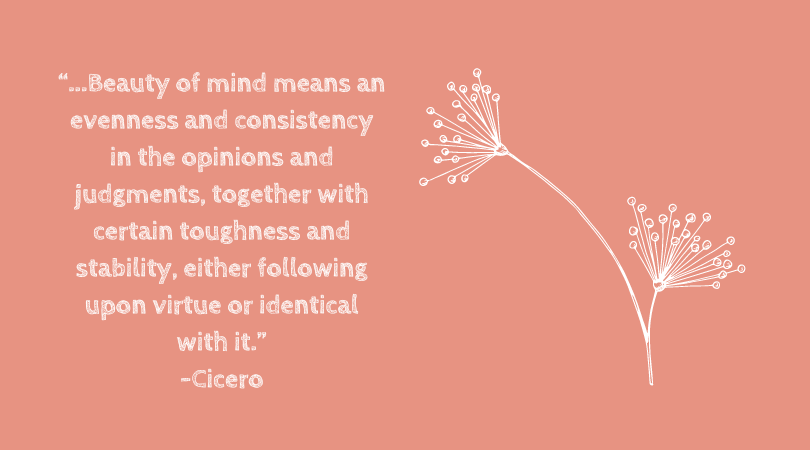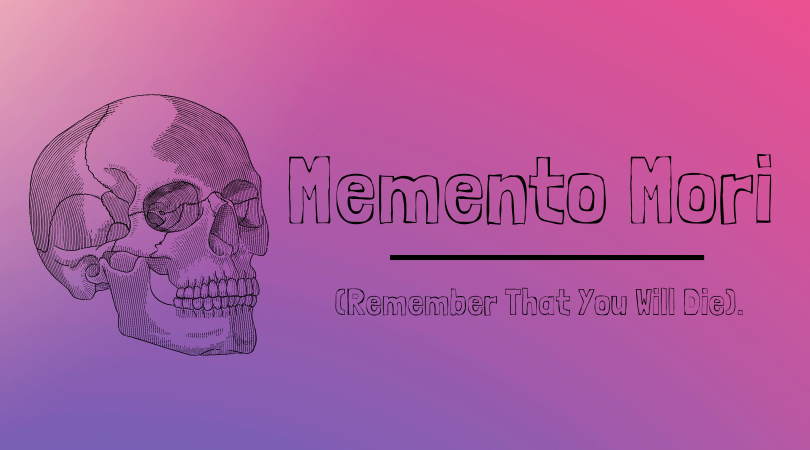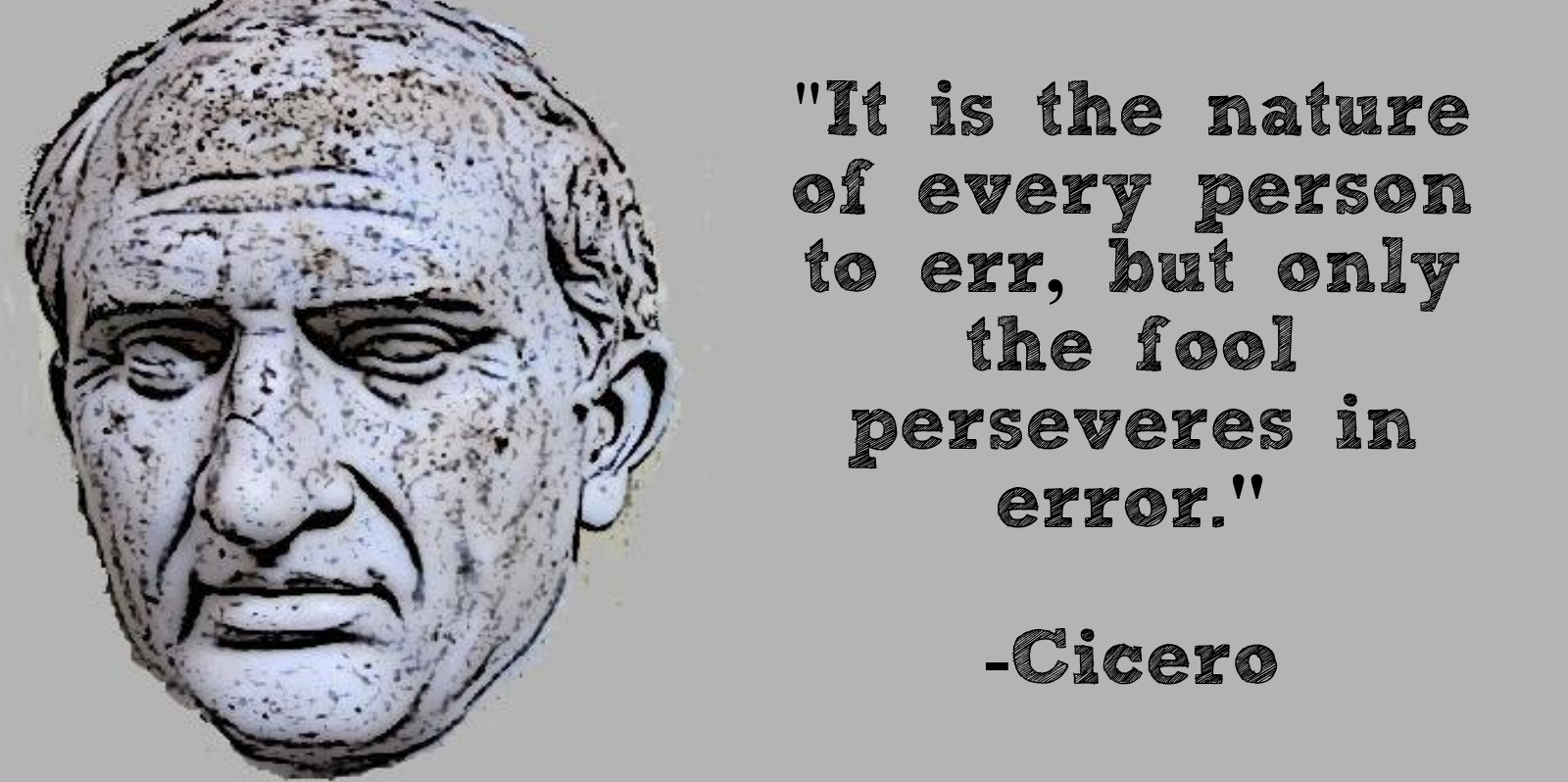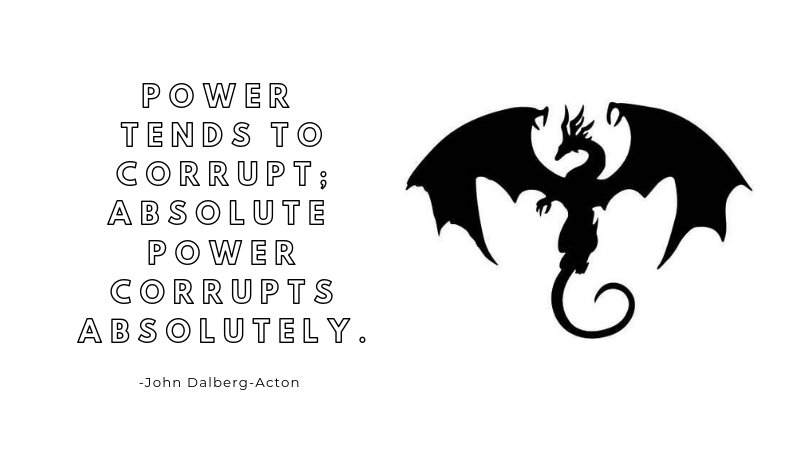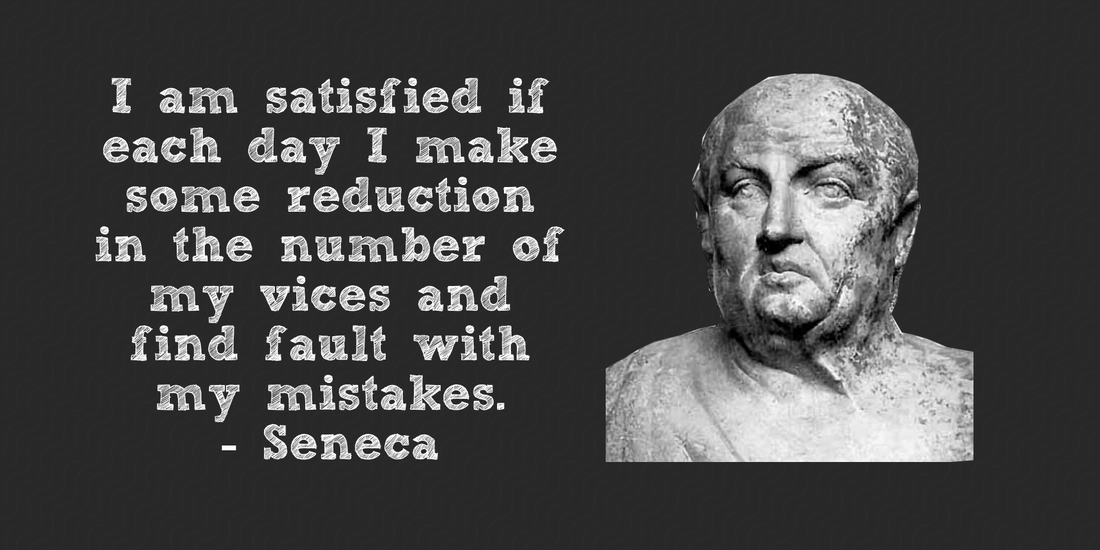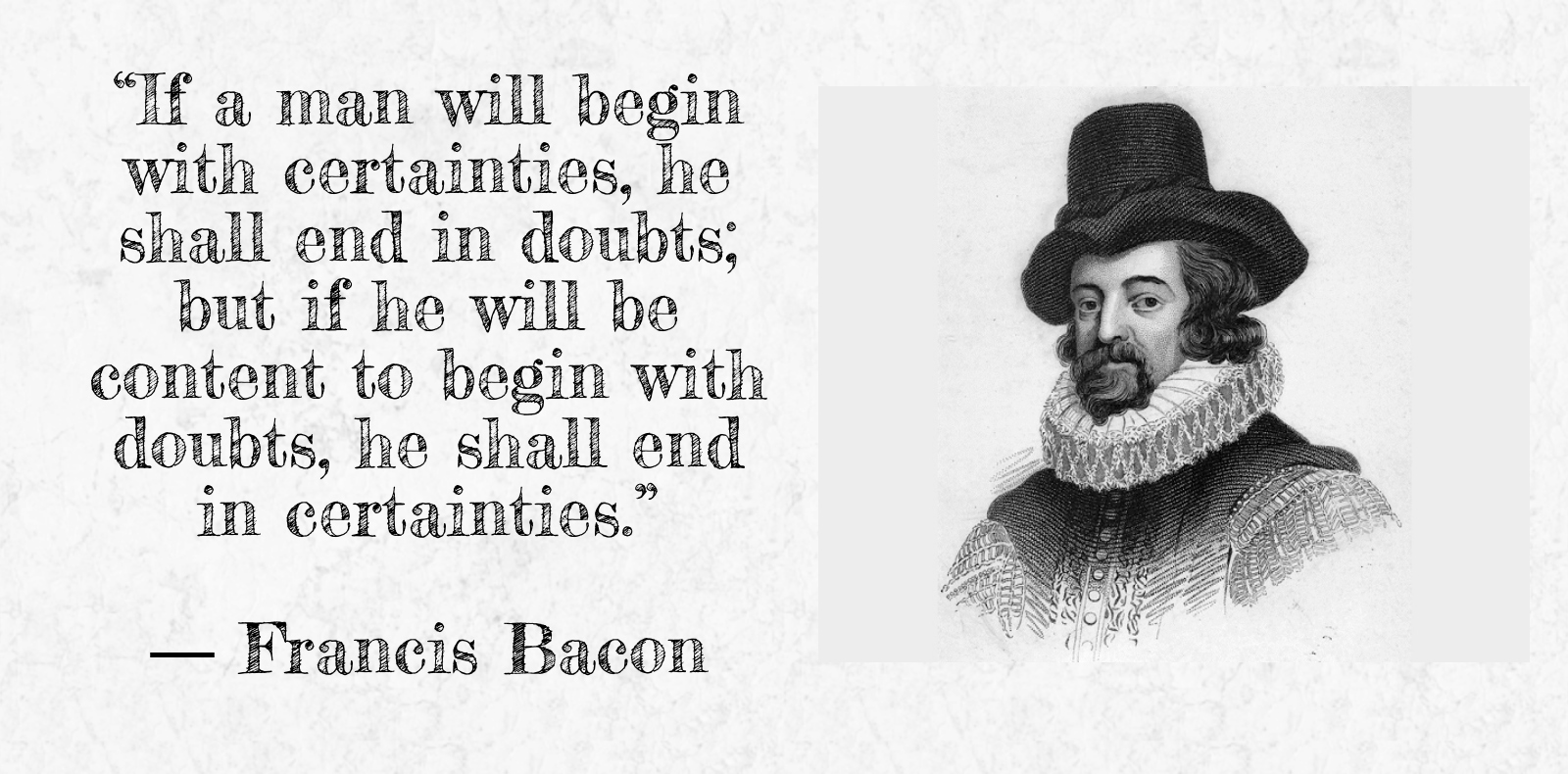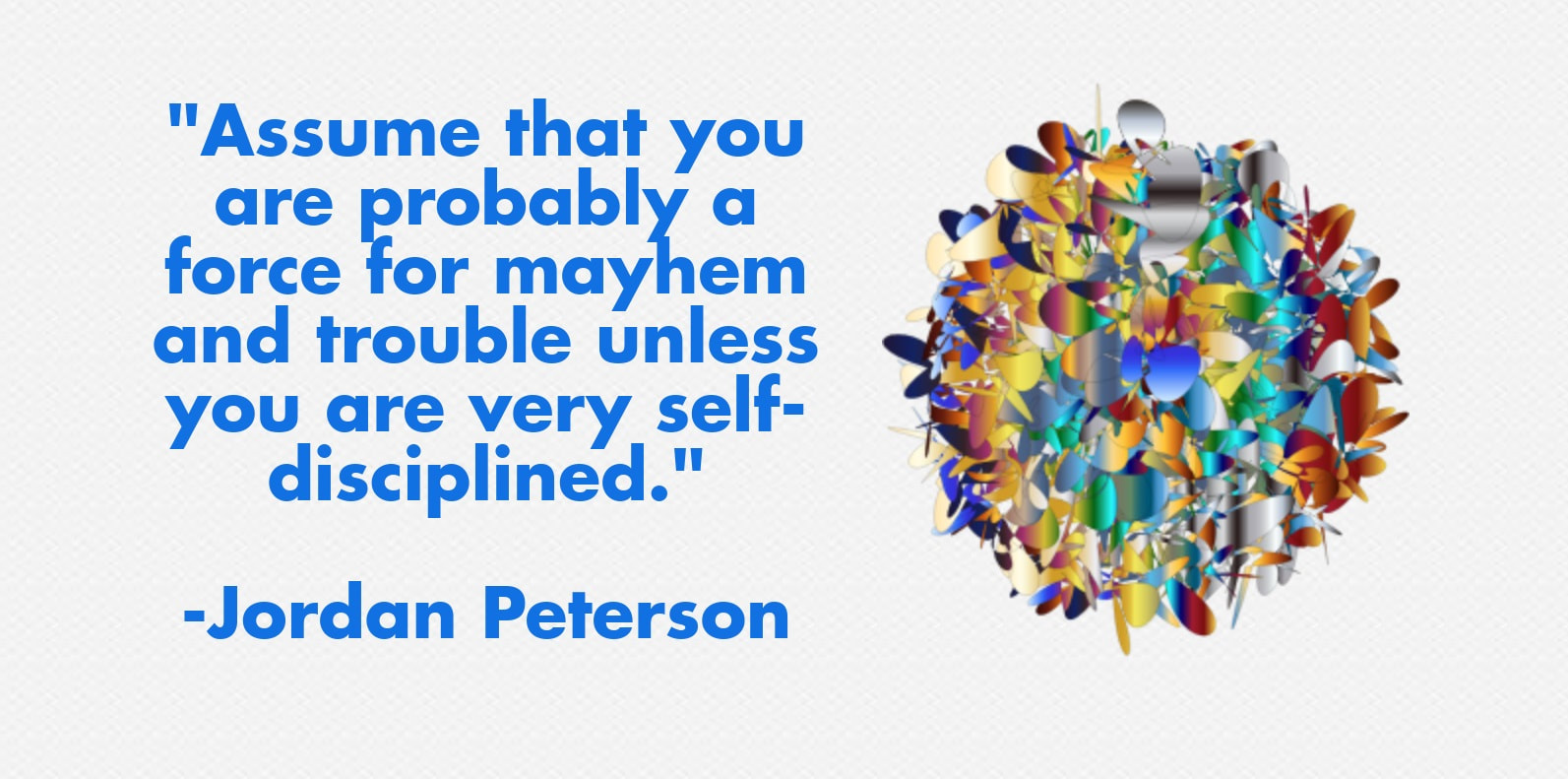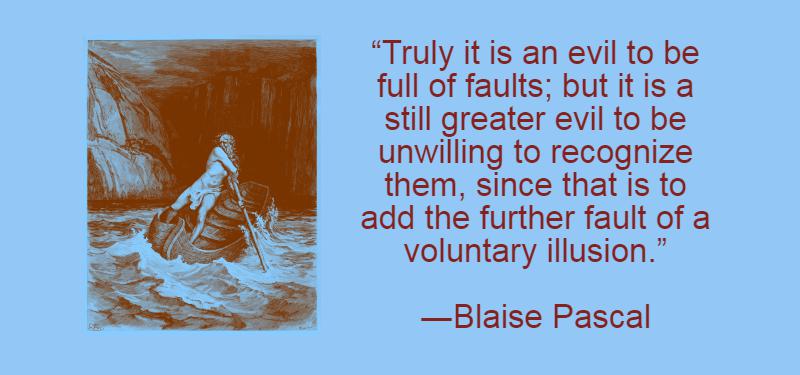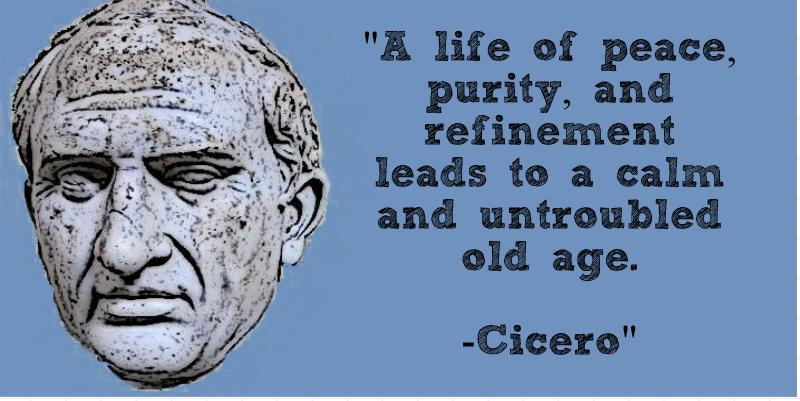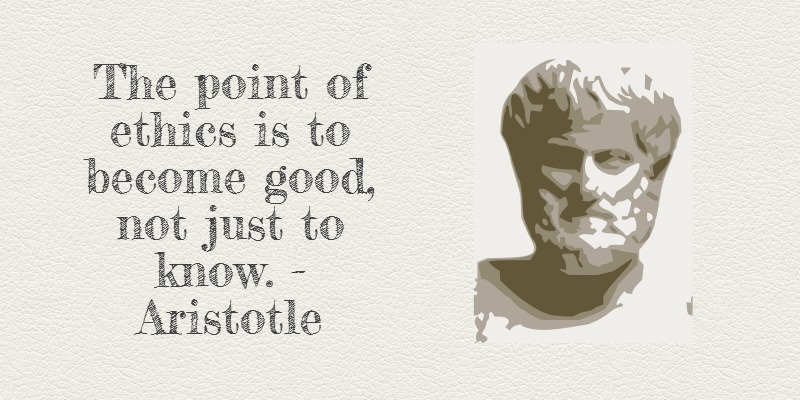The first part of the talk will be looking at what is moral beauty. We'll start with the ancient Stoics and we will fast forward about 1600 years to the Earl of Shaftesbury in England. Then we'll come up to contemporary times. How can we approach moral beauty? What does it mean for us today? And then the second segment of the talk will be some suggestions for how we can cultivate moral beauty today and make our lives more beautiful.
|
This guest post is a transcription of my friend Brittany Polat's talk at Stoicon 2023. It was previously published on Brittany's Substack, Stoicism for Humans, and includes the themes of virtue, moral progress, and Shaftesbury’s views on beauty and nature. I hope you find this very inspirational topic useful in your own life.
The first part of the talk will be looking at what is moral beauty. We'll start with the ancient Stoics and we will fast forward about 1600 years to the Earl of Shaftesbury in England. Then we'll come up to contemporary times. How can we approach moral beauty? What does it mean for us today? And then the second segment of the talk will be some suggestions for how we can cultivate moral beauty today and make our lives more beautiful.
2 Comments
When we are children, we can't even imagine the end of our lives. As we grow up, we are often so busy with daily tasks that we forget to notice how quickly life is passing by. We don't allow ourselves to think much about death, because we imagine that we a still have time.
But the truth is that life is short. None of us knows how much time we have. In Plato's Phaedo, he introduces the idea that philosophy is "about nothing else but dying and being dead". The Stoics were also fond of this discipline, and Seneca's letters are full of injunctions to meditate on death. Thinking about death need not be negative. On the contrary, it may inspire us to live betters lives in the here and now. According to Bronnie Ware, a hospice nurse from Australia, many of her dying patients expressed regrets over how their lives had played out. I've gone on to list 7 of these regrets below. Meditating on common regrets of the dying can help us to put our own lives into perspective before our time is up. One of the many interesting things attributed to the Roman statesman Cicero is a fragment called "The Six Mistakes of Man." It isn't entirely clear whether he actually wrote it, but since I'm a fan of all things Ciceronian, I thought it would nonetheless make for an interesting blog post in my According to Cicero series.
Studying the Six Mistakes is a good idea since regardless of authorship, they are perennially applicable. Life can be so much easier of we don't sabotage ourselves with unnecessary errors! According to Cicero the six mistakes that people seem to keep making throughout history are: Some tyrants come as liberators. That is the final twist in Game of Thrones, a show known for it's shocking plot twists. This is what George R. R. Martin's A Song of Ice and Fire is ultimately about; what war really does to people, the difficultly of just rule, the inability to overcome personal moral failings, and the cyclical nature of tyranny.
Game of Thrones, the show based on the Song of Ice and Fire novels, is a bit more about putting spectacle over story. But Queen Daenerys as the final villain, rather than Cersei or the Night King, is George R. R. Martin's surprise ending, make no mistake about it. Viewers were naturally horrified to watch a sympathetic character turn bad, but that's the whole point! We were tricked in order to get us to understand the cruelty and horror of war by watching a character we knew and maybe liked become a tyrant. This isn't just my hot take on it, either. George R. R. Martin was a conscientious objector to the Vietnam War. He acknowledges that the perception of war as something glorious is a problem. Though not a radical pacifist, he states in this interesting clip that his goal with A Song of Ice and Fire, is to show the true cost of war. Violence under the guise of "breaking the wheel," promoting democracy, human rights, and most other justifications is still abominable. That is why we should be looking for non-violent solutions to problems rather than perpetually glorifying war and violent conflict.
I just celebrated my birthday, so I thought it would be a fun change of pace to write a post about what I have learned in almost 4 decades of life.
I don't want this to read as a list of regrets. Really a more positive take is that I'm hoping these 38 life lessons can help others! 1. Don't Waste So Much Time Speaking of regrets, this is my biggest one. I wish I had spent more time on languages, musical instruments, and generally applying myself than on wasting time with friends, watching TV, etc. Life is short. Use your time wisely. You'll have less time when you start working, and even less for quite a while if you have children! In a frenzy of excitement over the December release of Star Wars: The Last Jedi (yes, I'm a nerd like that), I have been reading a lot of interviews and criticism of the film. This interview really got me thinking. Adam Driver (the actor who plays villain Kylo Ren) states: "In a lot of ways I don't really feel...as connected to my generation...I feel like there's need for discipline and not having a right answer and not having immediate access to everything." [Emphasis mine.]
Not having a right answer? Do Millennials really think that we are always right and that we know everything? Is this trait exclusive to the younger generations, or something common to humanity in general? Is being a know-it-all the result of being college educated? Propagandized? Am I guilty of this too? (Yes I must be...look at what I write about!) Always thinking that you are right is a fault to be sure. It annoys others, inhibits curiosity and promotes myopia. If you think you already know something, then you are less likely to seek more information or to think critically, especially about your entrenched belief systems. So is there any way to avoid this personality flaw of know-it-all syndrome? What qualities can we cultivate in ourselves to combat always needing to have the right answer? Most of us want to think that we are a force for good in the world. But if we haven't done a lot of introspective work aimed at overcoming our own faults, it might be safer to assume that we are actually a force for chaos. Becoming virtuous usually involves self-discipline and a lot of difficult introspection.
Aristotle teaches us that those who are enslaved to passions, who never rise above their animal natures by practicing the virtues, do not have the most worthwhile opinions. Anger clouds good judgement. Those who exercise reason and attain practical wisdom on how to best live their own lives, order their household, and finally, when sufficiently wise and mature, should ideally venture opinions on how to best order the political community. Jordan Peterson is a Canadian psychologist and professor at the University of Toronto. Peterson echos both Aristotle and the same sentiment that I wrote about in my post A Revolution Inside. He argues that unless we both understand and have control of our own negative qualities (or shadow self) we will project our worst impulses into the political arena while wearing a "mask of virtue." We need to work on ourselves first if we want to be an effective force for good and not end up doing more harm. If we want to see the world change, we must first concern ourselves with healing our own lives. Since I write about ethics, virtue, and character there has always been a possibility that someone will ask what exactly makes me so great. The answer is nothing. I have faults like everyone else. I am however, continuously working to discover and overcome my faults. It's important to do this type of ongoing self assessment if you have any real interest in improving your character.
In ancient philosophy, arete, translated as excellence or virtue, was often held as the goal of a lifetime. Excellence can be developed through insight and habit. It's important to have insight about your negative personality traits if you want to change them. Usually just a small part of your total personality is actively holding you back and keeping you from flourishing in life as you might if your faults were corrected. Examining your own character flaws is actually not the easiest thing to do. We innately resist looking at our truly negative qualities as a matter of psychological self-preservation. So how can we identify and work with our own shortcomings? Uncovering your faults takes some maturity and courage. These 5 techniques inspired by the ancient philosophical tradition and Jungian psychology have helped me to gain more insight into my personal failings, and I hope they will be helpful to you as well. Marcus Tullius Cicero was a Roman philosopher, politician, lawyer, orator, political theorist, and constitutionalist.
Cicero lead by the example of his life, and by all accounts he was ethical, moderate, and constantly strove to better himself and gain knowledge. Like other Romans, he believed that we all have a duty to society, and he took his personal and civic responsibilities seriously. Consequently he set a great example of maturity and personal growth, and his advice is worth taking seriously today. I have gathered some of his best quotes into the post below. You can be sure that regardless of your age, you lack maturity if you do these 5 things: While it is probably impossible to prevent all interpersonal conflict, many problems can generally be prevented by being “nice,” which is a simplified term for ethical conduct, kindness, and good character. You will have fewer interpersonal problems in your life if you are as mindful as possible of your own behavior, meaning that you don’t thoughtlessly say and do things that harm others.
I’m actually not the most tactful person by nature. But I have learned from direct experience that improving my tact and self control largely leads to freedom from self inflicted interpersonal problems. What does that mean? Well, the more that you consciously govern your behavior, the less you will say and do things that you regret or that ultimately sabotage your relationships and your happiness. There are steps that you can take to increase your tact in conversations, and control your own behavior. If these steps do not prevent most conflicts, you still have a right to point out the mistakes and limitations of others if their behavior is hurting you. The downside to free will is that people can misuse it to harm others. People have a right to be wrong, just not to do wrong. Which is why it is essential to have strong personal boundaries when dealing with difficult or unethical people in your life. Here’s How: |
Don't Miss A Post!Sign up to receive updates and special announcements! Thank You For Subscribing to Common Sense Ethics!You have successfully joined my email list. About Me:Thank you for your interest in Common Sense Ethics! I'm Leah, a librarian and freelance editor with a background in history and philosophy.
Most Popular Blog Posts:3 Unpopular (But Likely Correct) Opinions According to Cicero Download My Stoic Printables For Tough Days:
Watch Common Sense Ethics On YouTube:
|

